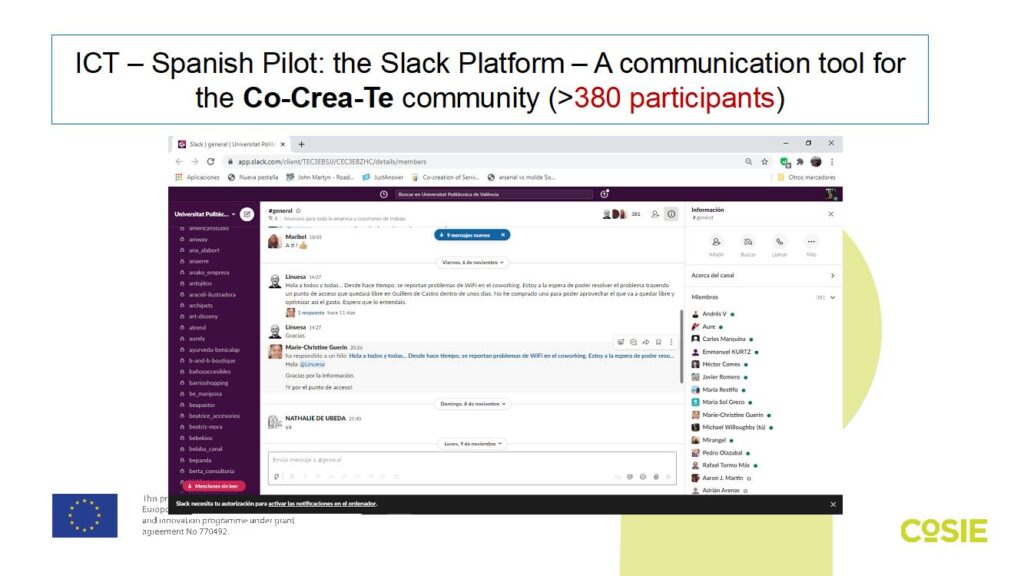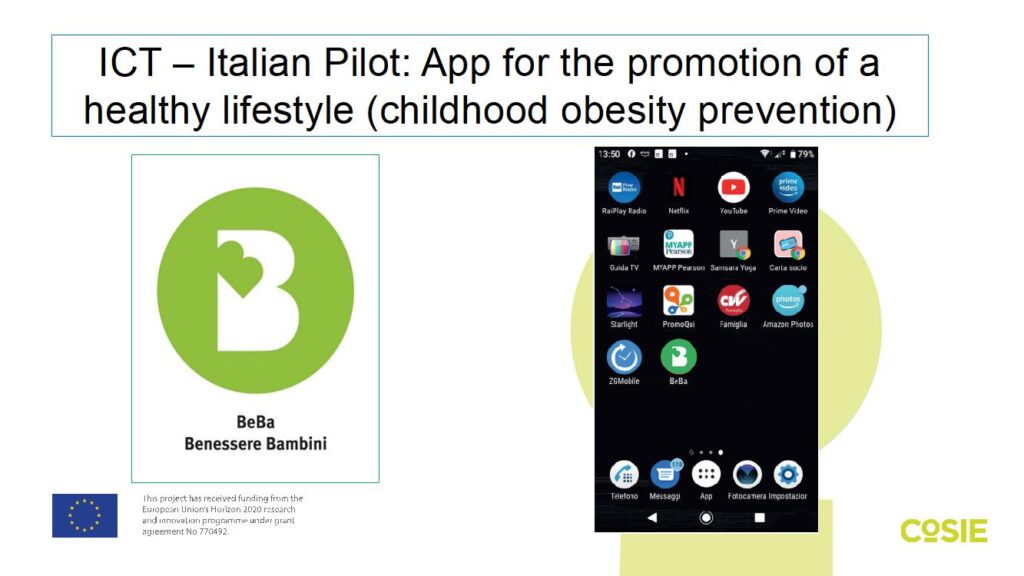ICT, open data and social media
Read and reflect upon
May digital communication technologies enhance user involvement in co-creation?
How may these technologies support co-creation?
What possible uses may big data and social media have?
The understanding of CoSIE partners is that co-creation implies a radical change in service culture, management and governance approaches. As such, it has implications for the use of Information and Communication Technologies (ICT), including open data and social media.
Open government data is data that is produced or commissioned by government-controlled entities – publicly and freely available in digital formats for use, reuse and redistribution (Jamieson, et al 2019)
ICT is one of many tools for co-creation. Open data and social media especially have been associated with a promise of enhancing broader stakeholder and user access to knowledge and service innovation platforms and involvement in co-creative activities (especially co-initiation, co-design phases) of service improvements and innovations. But there are broader expectations in renewing and democratising the services. Open data may aid:
- to increase transparency of government, trust on government and stakeholder engagement
- to discover new (preferably comercial) solutions to address societal challenges based on better knowledge
- to achieve more efficiency gains by sharing data between different actors
- to foster participation of citizens in political and social life
- to increase self-management of vulnerable people
Some key promises of social media are:
- to generate content that can be quickly and efficiently dispersed to a large audience
- to enable governments to raise their outreach to citizens whilst empowering citizens to have their opinions heard.
- to provide means for engaging citizens in public service innovation
In many of the CoSIE pilots, there are several national or local organizations and websites that offer advice, consultancy, guidance or support in working with open data. In Estonia, the Open Data Portal provides a single point of access for the general public to unrestricted public sector data with the permission to re-use and redistribute such data for both commercial and non-commercial purposes. The City of Turku, Finland, has its own specialist to receive requests for open data. The specialist is not only helping the city staff to get data released, but also supports the consumers of the city’s open data. There are also online resources to get started with. The website has access to the open data APIs, the descriptions of these APIs and their usage instructions.
Open data: We may evidence examples of both in CoSIE, especially the use of open data to discover user needs (Spain), service experiences (Sweden) and some service gaps and plan service changes (Sweden). Only few pilots utilized open data in the “implementation phase”: for instance see the Italian Pilot where open data were embedded in the App.
Social media: We could also see how social media may help to reach out (Estonia, Sweden); and involve (Spain) targeted marginalised groups. Indeed, enhanced user engagement offers opportunities for more tailored services, and in some cases (Sweden) user and stakeholder engagement might be triggered by greater government transparency through open data. The Finnish pilot developed a social media tool called Luuppi, with which they were able to examine and analyse social media posts.

ICT: Some pilots also utilized ICT tools in the co-creation process. The Italian pilot was dedicated to co-designing and implementing a digital solution but innovative adaptions of digital technologies are significant in Spain, Finland and Estonia. In Finland, digital technologies are important for reaching more of the target group (marginalised young people) than is possible in events and workshops. It must be recognized that ‘Open Data’ were used much more than ICT among our pilots.

Yet, are perhaps the expectations of ICT somewhat overrated in enhancing co-creation of deeply tailored and meaningful welfare services that are highly interactive, relational, and demanding high ethics? There are limitations and even treats with using open data and social media in co-creation with vulnerable groups.
Immerse yourself
Indicative literature for further reading
Jallonen, H. and Hello, T. (2020) Co-Creation of Public Service Innovation Using Open Data and Social Media: Rhetoric, Reality, or Something in Between? International Journal of Innovation in the Digital Economy 11(3):64-77, DOI: 10.4018/IJIDE.2020070105
Jamieson, D., Wilson R, Martin, M. (2019). The (im)possibilities of open data?, Public Money & Management, 39, (5), 364–368 https://doi.org/10.1080/09540962.2019.1611240
Gebauer,J., Füller, J., Pezzei, R. (2013).The dark and the bright side of co-creation: Triggers of member behavior in online innovation communities. Journal of Business Research, 66 (9), 1516-1527 https://doi.org/10.1016/j.jbusres.2012.09.013
Coles, B. A. & West, M. (2016). Trolling the trolls: Online forum users’ constructions of the nature and properties of trolling. Computers in Human Behavior, 60, 233–244. https://doi.org/10.1016/j.chb.2016.02.070